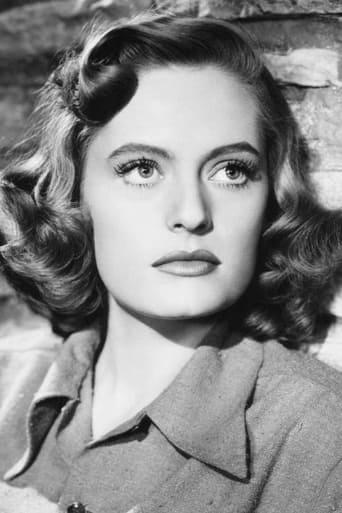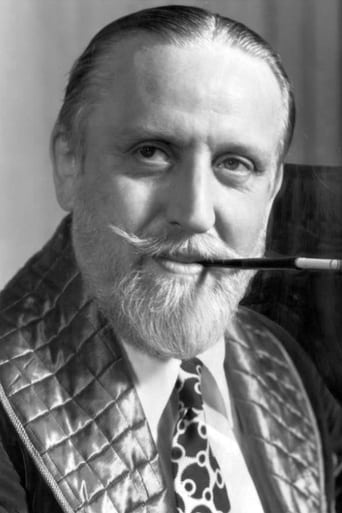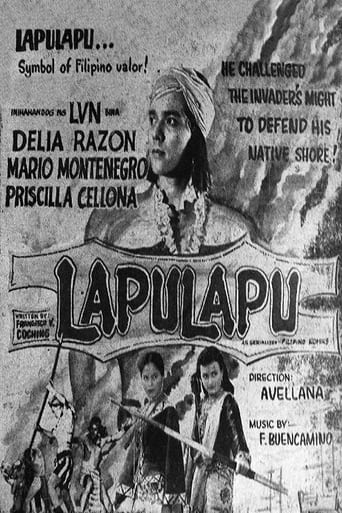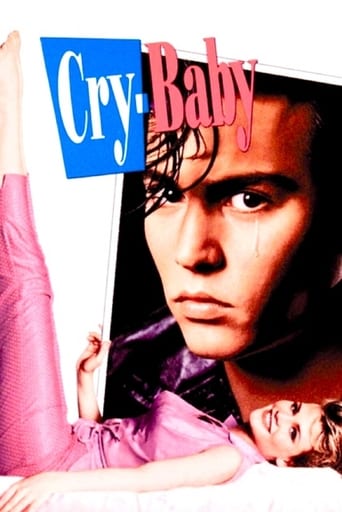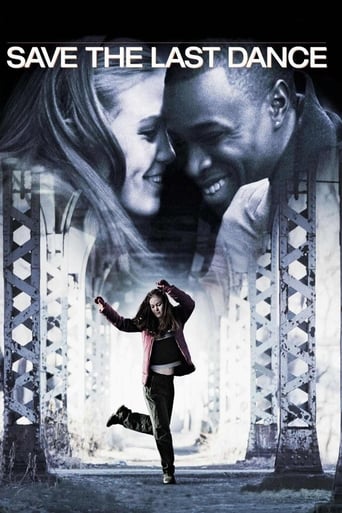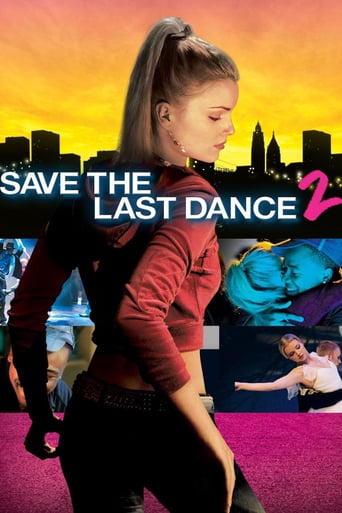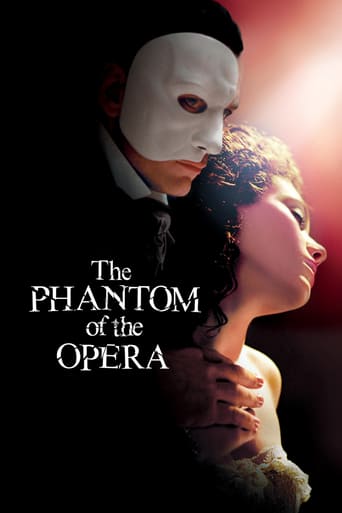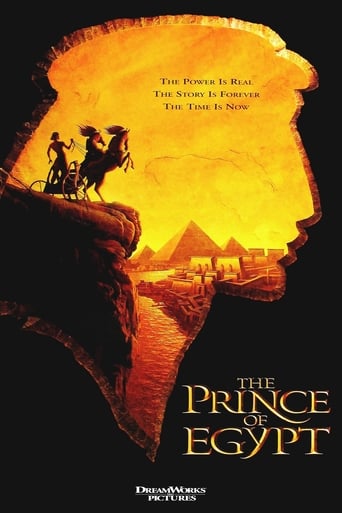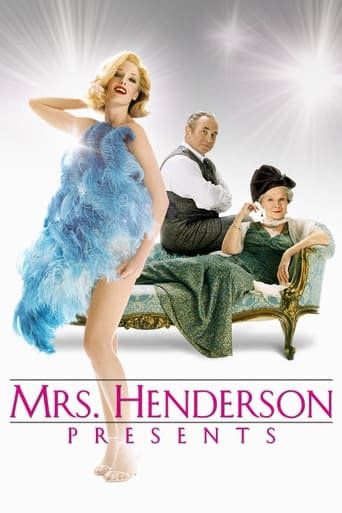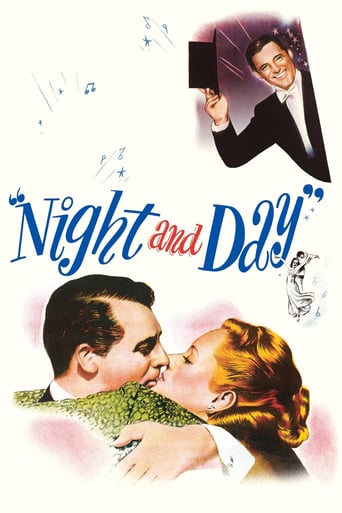

Night and Day (1946)
Swellegant and elegant. Delux and delovely. Cole Porter was the most sophisticated name in 20th-century songwriting. And to play him on screen, Hollywood chose debonair icon Cary Grant. Grant stars for the first time in color in this fanciful biopic. Alexis Smith plays Linda, whose serendipitous meetings with Porter lead to a meeting at the alter. More than 20 of his songs grace this tail of triumph and tragedy, with Grant lending is amiable voice to "You're the Top", "Night and Day" and more. Monty Woolley, a Yale contemporary of Porter, portrays himself. And Jane Wyman, Mary Martin, Eve Arden and others provide vocals and verve. Lights down. Curtain up. Showtune standards embraced by generations are yours to enjoy in "Night and Day."
Watch Trailer
Cast
Similar titles
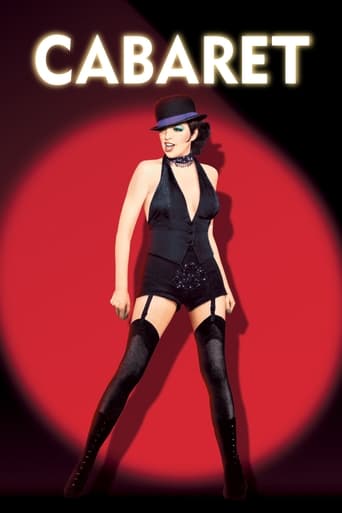
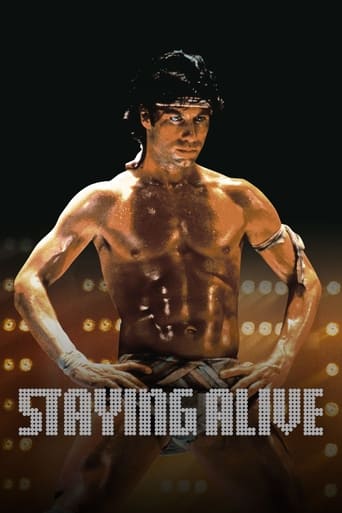
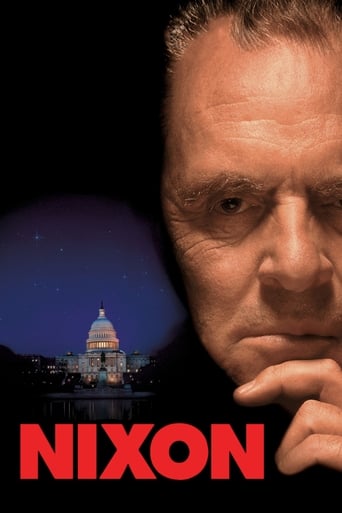
Reviews
Pretty Good
Excellent, Without a doubt!!
Excellent and certainly provocative... If nothing else, the film is a real conversation starter.
The acting in this movie is really good.
Just a few comments: 1. The image quality of the 2004 Warner Home Video DVD is not up to their usual high standard. Some parts of the film, especially the early portion are very sub-par, scratches, washed out color, and out of registration Technicolor (color fringing, image lacking sharpness). Later portions of the film look as good as modern restorations of 1940's Technicolor do.2. It's doubtful Warners would have had to pay MGM and especially RKO to use Porter songs written for their films, as one reviewer conjectured; Warners owned and still owns the publisher of Porter's music, and Porter probably had enough clout to own rights to his songs rather than the studios some were written for.3. Personally, I find the film inferior in many respects. Except for Mary Martin, the song renditions are a bore. Ginny Simms, the primary vocalist in the picture, had a pleasant trained voice, but her style was bland and she was a zero in the charisma department. The dances and the way they are filmed are mediocre, far below what MGM would have done in this period. Cary Grant often seems uncomfortable in the film, trying to mask this with an insincere smile. Alexis Smith's beautiful face and the believable emotions it's expressing are nearly ruined by the garish, over the top makeup she saddled with. The musical arrangements are merely adequate, very inferior to what the arrangers at MGM and Fox contributed to their musical films, and also very inferior to what Night and Day's music director-arranger Ray Heindorf was capable of later in his career (for example A Star Is Born, and Pete Kelly's Blues).
This is a very strange, very disappointing movie. No, not because it strays so far from the actual facts of Porter's biography; lots of biops, especially older ones, do that.This movie is strange because it featured so much talent with so little result.Michael Curtiz is one of my all-time favorite directors, having given us some of the greatest, most thoroughly engaging of all American movies: Casablanca, of course, but also Yankee Doodle Dandy, The Adventures of Robin Hood, Sea Hawk, and many more. They are movies of great passion without a dead minute.And yet, apart from some well-staged musical numbers, Night and Day is nothing BUT dead minutes. The episodic nature of the script doesn't help any; characters (especially women) appear and then vanish. But primarily, there is NO chemistry between Cary Grant/Cole Porter and any of the women in this movie.Was it because Grant and Curtiz knew that Porter was gay and were trying to suggest that despite the script? Somehow, I doubt it. Monty Woolly shows far more feeling for Porter - whom he knew in real life, of course - than Grant/Porter ever shows for any of the women in this picture. In the last shot, when Alexis Smith (Porter's wife) embraces Grant, his face still shows no real love, much less passion, for her. It is a very strange performance from a very great actor who was certainly quite capable of making sparks fly with women on the screen.In the end, I couldn't help but feel that the only convincing relationship in the movie was the one between Porter and Woolly, largely because of Woolly's acting, even though that is the part of Porter's biography that the movie was at least ostensibly trying to suppress.The rest of the movie is pretty flat as well. Cole had no real hardships on the road to success, other than his ill health, so there is not much to develop into drama. There are the clichéd "inspiration" scenes: Porter finds the lyrics to "Night and Day" one rainy night when a grandfather clock ticks and rain drops against a window outside, etc.If you like Porter's music, there are some well-staged numbers - though what should have been one of the best, Mary Martin's "My Heart Belongs to Daddy," with which she had such a great success on Broadway, somehow comes off flat. Woolly is good doing "Miss Otis sends her regrets," though it could have been staged better.If you're looking to learn about Cole Porter, this is not for you.But if you're looking for an engaging even if fictional story with interesting characters and engaging interaction, this really isn't for you either.What a shame all that talent went for so little.
Those looking for a biopic of Cole Porter would be better served elsewhere. This is the 1946 version of his life and it leaves out a lot of truth and stylizes the rest. The ending of the film gives those in the know a clue. When his wife (Alexis Smith) runs into his arms all excited, the camera shows that he isn't really as glad to see her as she is to see him. Maybe, that is because she left him, not for being a workaholic and ignoring her, as the movie suggests, but because his homosexuality was becoming more open in Hollywood.But, despite the glossy image of Porter, it was still a worthwhile film and it did get an Oscar nomination for the music, which should be no surprise to anyone. Porter's music is some of the best written and performed in the country and there are almost twenty of his songs featured in the film, some sung by Jane Wyman, the only Oscar winner that was the wife of a future president.Cary Grant is magnificent as Cole Porter. He makes the film worth viewing for his presence alone.
"Night and Day" is part of "Cary Grant: The Signature Collection," a five-DVD boxed set, the other four films being "Mr. Blandings Builds His Dream House" (1948), "The Bachelor and the Bobby-Soxer" (1947), "My Favorite Wife" (1940), and "Destination Tokyo" (1943). Given my musical background, I figured that "Night and Day" (a biographical film of one of the world's favorite composers/songwriters: Cole Porter) would be my personal favorite of the five; instead, it turned out to be the film I liked the least. True, it has the look of a multi-million-dollar Technicolor production, featuring many favorite Cole Porter standards such as "I Get a Kick Out of You," "What Is This Thing Called Love?", "Just One of Those Things," "I've Got You Under My Skin," and, of course, "Night and Day." But there are a few major flaws with this movie. Most notably, the various prolonged lavish production numbers cause this two-hour picture to drag considerably. Plus, it is my understanding that the events in this pictorial biography of Cole Porter could hardly be deemed accurate. To top it off, Cary Grant (one of my favorite actors) was a curious choice to play the role of the great composer. Question is, does he indeed FIT that role? Hard for me to tell, but he at least plays the part with his usual charm and suavity. The story of Cole Porter, as depicted in this movie, traces through his final year at Yale as he neglects his law studies, to the consternation of his grandfather; his early struggles as a composer, including a show that closed after one performance because of the sinking of the Lusitania; his getting wounded in action during the First World War while writing his popular "Begin the Beguine"; his writing of "Night and Day" in seclusion (influenced by rain and a grandfather clock) while being nursed by the woman who would eventually become his wife, Linda Lee (Alexis Smith); his eventual successes with show after show after show, to the detriment of his marriage; his losing the use of both legs from a fall off a horse; and his valedictory performance back at Yale.Despite the film's weaknesses, "Night and Day" contains quite a few memorable scenes, all of them musical. Cole's close friend, Yale law professor Monty Woolley (playing himself), summons Cole from playing piano in a theatrical show to rush back to the Yale campus and lead the singing of his "Bulldog Song" at a football rally. At a rehearsal hall owned by the pompous Wilowski (Sig Ruman), Cole and his friend Gracie (Jane Wyman) perform a swinging arrangement of Cole's "Let's Do It (Let's Fall in Love)". The French star Gabrielle (a flashy role for Eve Arden) sings Cole's "I'm Unlucky at Gambling"; not much of a hit, but *I* think it's a catchy tune. One of the more humorous scenes in the picture involves Monty singing/reciting Cole's "Miss Otis Regrets" for a couple of theatrical producers (one of them played by Alan Hale). At a sheet music store, Cole and his friend Carole (Ginny Simms) perform "What Is This Thing Called Love?", which generates quite an auspicious response from the customers. Cary Grant actually lends his own voice to Cole's singing/playing of his "You're the Top" with Carole. And finally, when Cole returns to Yale to perform a most beautiful rendition of "Night and Day" with an orchestra and a male choir, he is quite surprised to see Linda in the audience after a lengthy separation; Cary Grant again lends his own voice to the very soft "You, you, you" lyric during the introductory verse, and before the piece ends, Cole and Linda step outside and, without a word spoken, embrace.

